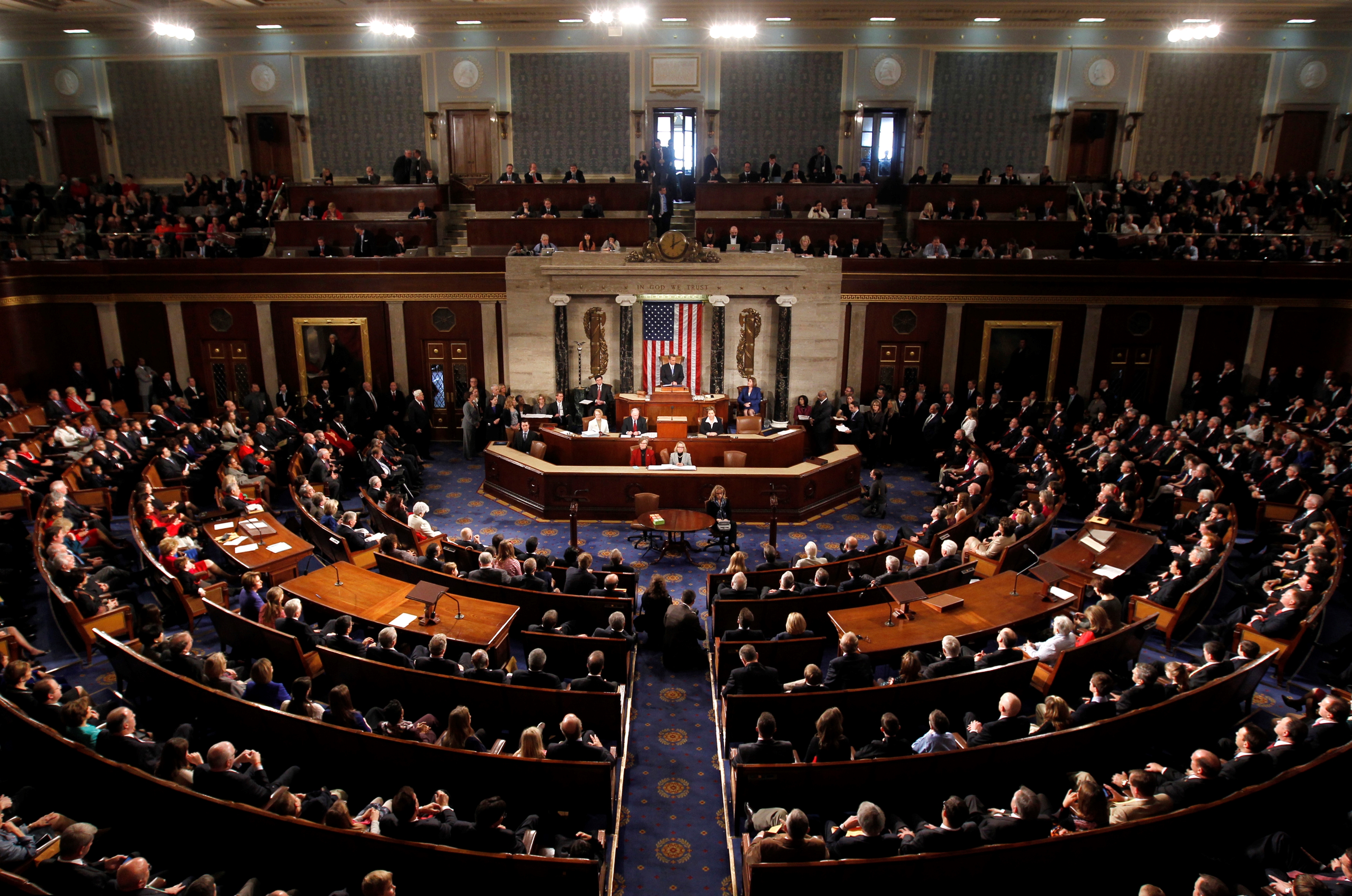Congressmen demand clarification on US role in Yemen
Democrat congressmen are demanding clarifications from the US on the role the US has in Yemen and the support it is offering to the Saudi-led coalition.
-

The US Congress in session
Democrat lawmakers have demanded that US President Joe Biden clarify the role of the United States in Yemen, in addition to the forms of support Washington is offering the Saudi-led coalition in its war on the country.
The lawmakers have also demanded that Biden avoid taking any steps that would lead to Washington becoming further involved in the devastating seven-year war.
Congressman Ro Khanna, a Democrat representative from California and staunch critic of the war, told the Middle East Eye that the White House needed to end all military support to the Saudi-led coalition effective immediately and focus on diplomacy as a means to put an end to the war.
"This dangerous escalation in Yemen has to stop. For years the Saudi-led coalition has been pounding civilian areas and infrastructure in Yemen and recently escalate[d] those strikes," Ro Khanna told the media outlet.
The congressman also highlighted that the Saudi-led coalition recently conducted airstrikes on water treatment facilities, which left more than 120,000 Yemenis in Sanaa without access to clean, potable water.
To bring an end to the war, Khanna said, the United States must use their leverage on the Saudi-led coalition "and end US military support to focus on diplomacy to secure a political solution and life-saving aid."
Shortly after becoming President in 2021, Biden pledged to end American support for offensive operations in the war, which Democrats hailed.
A year later, it is uncertain what "ending offensive operations" meant; what did he mean by offensive operations and defensive support? What are the weapons systems that fall under each of these two categories?
Democrat Oregon representative Peter DeFazio urged the White House to "end its involvement in this war now," lambasting Biden's "vague announcement" regarding the end of support to the coalition.
At the start of his term, Biden promised to end the US’s involvement in so-called ‘offensive’ operations in the Saudi-led war in Yemen. A year later, the U.S. still supports many offensive operations. It’s time to end our unauthorized involvement in endless wars across the globe. https://t.co/vw6f6K8JiN
— Rep Peter DeFazio (@RepPeterDeFazio) January 21, 2022
"At the start of his term, President Biden promised to end US support for so-called 'offensive' operations in this war - but he never defined what this vague declaration actually meant. A year later, the US continues to directly support this war," DeFazio told the Middle East Eye.
Another Democrat, Debbie Dingell, a Michigan representative, demanded that the Biden administration "publicly pressure" Saudi Arabia into ending its land, air, and naval blockade on Yemen, which has so far claimed thousands of lives and put thousands of others in harm's way and in critical condition.
She also urged the administration to make efforts to de-escalate the situation and reach a peaceful resolution.
"Yemen's humanitarian and security crisis continues to worsen. We won't solve this conflict with war - I condemn the deadly airstrikes and continued violence and call for de-escalation and a peaceful resolution immediately," she told the same media outlet.
Some 41 Congress members asked the Democrat president to clarify what forms of military aid the Trump administration had been providing to Saudi Arabia, what aid would continue, and how his administration would define "offensive operations."
In November, Biden approved a $650 million arms sale to Saudi Arabia, which comprises 280 AIM-120C-7/C-8 Advanced Medium-Range Air-to-Air Missiles (AMRAAM), 596 LAU-128 Missile Rail Launchers (MRL) along with containers and support equipment, spare parts, US Government and contractor engineering, and technical support.
Saudi military purchases from US sources and firms are estimated at $63 billion since its aggression on Yemen, adding the collective contracts stipulated with US firms in which Saudi Arabia "was clearly the primary buyer."

 4 Min Read
4 Min Read








